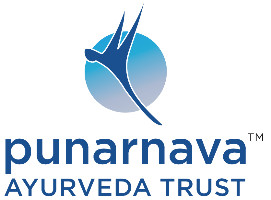Faith
We often hear the word shraddhA in the vedAntik texts. An aspirant needs to have this if he wishes to walk the spiritual path. What is shraddhA?

Shraddha
shraddhA cannot be aptly translated into English. Loosely put, it may be be called faith and trust. In the context of Vedanta it is the trust that one has in veda, where the veda is taken to be a valid means of knowledge(pramANa). It is the trust that the veda is a means to knowledge, hence a means for liberation.
Only if an aspirant has such faith in the words of the veda, will he take into account what the upanishad reveals. Lacking faith, the upanishadik statements would be mere words.
What is a pramANa? Any means through which one gains knowledge is called pramANa. The eyes are pramANa to see form- form and color knowledge. Ears are pramANa to hear- sound knowledge. Nose is a pramANa to smell- olfactory knowledge. Spiritual knowledge also has an appropriate means of knowledge. vedik scriptures are a means for self knowledge.
This is the most important part of the spiritual pursuit. Knowledge is gained through words of shAstra and if there is no trust in its validity, one obviously will not have a bent of mind to pay heed to what it says.
Even if one accepts without shraddhA, one will only accept a diluted version of it. We will try to refute it, argue about it, also misinterpret it and worst of all demean it. Some may say “I trust what the veda declares about the Atma (self), but I do not think I have to do what it lays down. Though what the veda says is the truth and I trust it, I do not think I have to go to a guru to understand it” etc. Many such arguments and counter arguments may follow.
Mistrust in the veda will be followed by mistrust in the preceptor, whose only work is to unfold and deliver the words of the scriptures. Such a rejecting, narrow mind can never let the magic of the vedik words happen in the mind.
How can I generally trust the veda?
These are the revelations of the Rishis. vedAs are not like some book given out by some publication. Any book we see now will have an author and a date of publication. It will also reach a peak of million sales probably, but sadly one day the sales stop. vedAs are timeless and apauruSheya (not a fabrication of human mind). They are eternal and are revealed to mankind by seers (Rishis). This vedik wisdom has provided many with knowledge. The spiritual stalwarts are living examples for us as a proof for the validity of the vedAs.
We have shraddhA in our transactional lives too. How do we place trust in the daily newspaper that we read, which reports that such and such a place was hit by an earthquake? We trust it and based on it, we make donations to some charitable organizations.
When we set out on a journey, we buy a map. We will never say “Oh, I will not start the journey because I don’t trust the map” or “I will start my journey but will follow the map only till midway, because I don’t trust it”. We start the journey placing trust in the map. Once we reach the goal, our trust is proved valid.
There is no way to prove the revelations of vedAs.
How can we prove the theory of karma?
How can we prove the existence of different lokAs (heaven etc). On the other hand, if an aspirant moves on considering it as a valid means of knowledge, the liberation is guaranteed. That is enough reason to have this trust.
shraddhA is this prAmANya buddhi – meaning the mindset to hold vedAs as a pramANa – valid means of knowledge in the pursuit of self knowledge. Is it enough if one has shraddhA in shAstra? No. This shraddhA should be placed in the guru also. He is the one who will unfold the meaning of the words, else, the words appear to be mumbo –jumbo. The trust placed in shAstra and guru is indispensable.
Apart from having trust in these two, there are two other factors helping an aspirant.
One should have trust in the goal – self knowledge. One should understand the nature of it. What is its nature? Destruction of ignorance is self knowledge. This liberates the aspirant. Then will the world disappear? No, the world, body-mind-sense complex will not disappear but are all now known to be non substantial, the self is claimed as one’s own nature as sat chit Ananda
One should also have faith in oneself, meaning one should be confident enough to take to this pursuit and should strive with commitment. This will come with faith in guru, shAstra and by prayer.
What if I don’t trust the veda as valid means?
If I don’t trust the Vedas, I have to trust something else for knowledge. Any ‘something else’ is definitely man-made. If one can trust a man made source, which is always subject to contradictions and misgivings, then, one rather trust Vedas which can never fail anyone.
The next question is “ Is it almost like blind faith” The answer is a big NO.
When someone says, that “God is there to save you”, “You have sinned and need a saviour” etc; under such contexts a blind faith props up. You believe in the saviour thinking that you have sinned. You are doomed if you do not believe the saviour. That will be another sin actually!!!
Vedanta says you need not be saved at all. You alone are the truth, the non dual truth. There is no rescue work needed! Where is the question of blind faith, when all that is needed is knowledge. Liberation for us is through knowledge, and here, there is no role for blind faith to play.
When told “ You verily are the truth” it might sound blasphemous to a person. shraddhA does not mean one should not question one’s understanding and follow the statements blindly. There is no blind faith in vedik religion and spirituality.
One is allowed to question and discuss; but the attitude matters. If one questions with the idea of refuting veda, then it is lack of shraddha (ashraddha). Instead if one says, veda cannot be wrong, but there is some confusion in my understanding and the concept of me being the whole, the truth, is not sinking; then it is shraddha. The person has doubts, conviction is not there, but he has trust in the veda as being a valid means of knowledge.
Many of our upaniShads are in the form of dialogue between guru and disciple. The student asks questions till he gains conviction. Neither the guru nor the upaniShad expects you to listen once, blindly accept and pack up. There is a gradual unfolding of the vedik words by an adept guru. The whole learning environment is open, friendly, encouraging, logical and of course filled with shraddha
How to prove that one will be benefited if one has shraddha?
Suppose, a person had an accident and he also hurt his eyes badly. He was operated upon and the time has come for the doctor to remove the bandage on this eyes. Now is the moment for him to test his eyes. Will he say “ How do I know I will be able to see. I am unsure, so, I shall not open my eyes” . No. All he has to do is open his eyes, the means of knowledge. Once he opens them he knows whether his eyes are functioning properly. He will get the form-knowledge which means his eyes are fine. He has to let the means of knowledge (eyes) do their work for him to know if they are functional.

So also, we need not get any other evidence to prove that veda gives knowledge. We just have to use the means of knowledge, (the words) to prove that they are a means! Eyes are a proof for themselves, so also, vedik words are proof for themselves. I do not see ( I have form ignorance); I open my eyes (let the means work) and get form knowledge. So also, I have ignorance of the fact that I am existence consciousness; I have shraddha in the vedik words and let them do their magic; I get knowledge which is in the form of negation of ignorance.
Hence, one has to let the upaniShadik words do its work. Accepting veda as a pramANa to remove the ignorance about oneself is shraddha, accepting the statements (whether understood or not) but questioning one’s understanding till understood.
